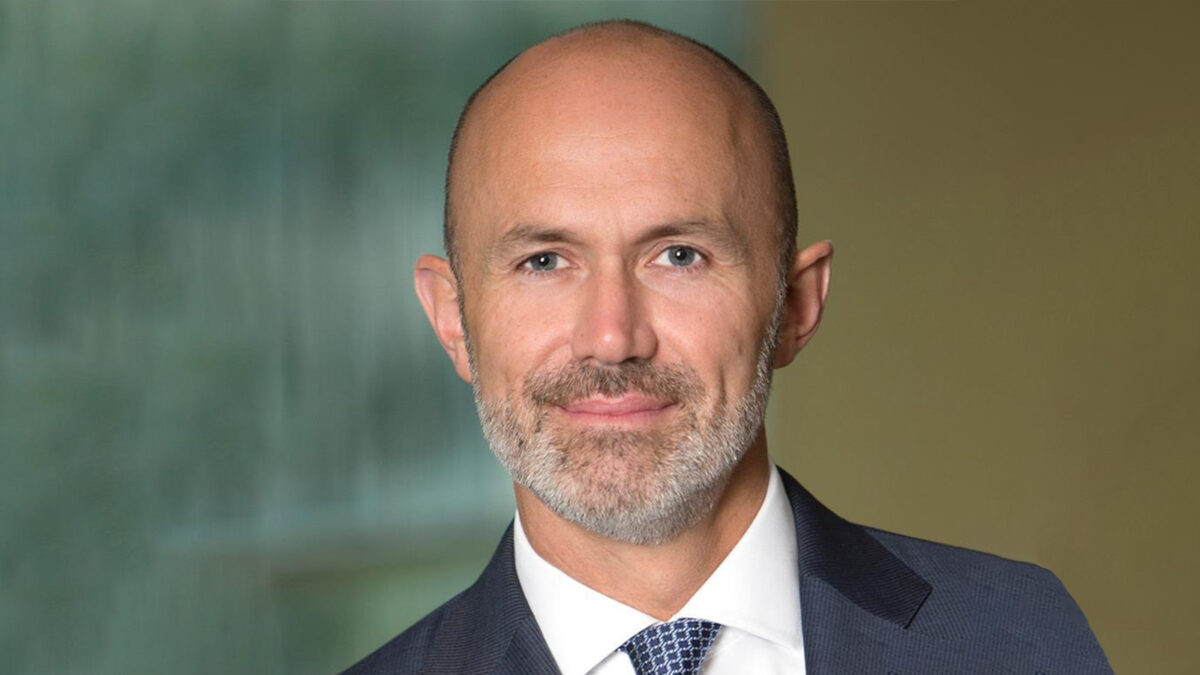Alts in, 60/40 out after the ‘Great Moderation’: BlackRock
BlackRock’s inaugural private markets survey found that 70 per cent of the more than 200 institutional respondents plan on increasing their allocations to alternatives as they search for income in the face of rising rates and public market volatility. The survey covered pension funds, insurers, family offices, sovereign wealth funds and endowments with a total of $15 trillion of assets under management.
“Over the past 20 years, we have seen private markets grow from a niche category to the cornerstone of many portfolios… sophisticated investors have moved on from the 60/40 allocation model and that private assets will continue to grow as a percentage of global portfolios,” said Edwin Conway (pictured), global head of BlackRock Alternatives. “Despite broad market declines last year, recession concerns and recent market turmoil, we see that short-term uncertainty is not derailing the growth of private markets.”
Still, pension funds and other institutional investors have plenty of reservations about private markets, foremost among them illiquidity and capital lockup, with 49 per cent citing that as their main barrier to allocating to the asset class. What worries them the least is valuations (21 per cent), while 41 per cent found internal stakeholder buy-in to be tough.
“One way that an institution’s attitudes toward private markets could change is, for example, at the board level at pensions, which can be very top-down in their decision-making,” a portfolio manager at a Swiss pension fund told the survey. “Over time, a different generation will come in with a different focus, and a different understanding of certain principles or certain investments.”
Respondents viewed infrastructure and real estate debt, as well as niche real estate – including data centres and cold storage facilities – as some of the biggest investment opportunities in the private markets. In private equity, most respondents viewed mature companies as the best opportunity (56 per cent), with venture capital coming in second at 40 per cent.
“I think people are cautious right now, so mature companies make sense, though I am a little surprised to see venture capital so high,” an alternatives portfolio manager at a U.S. corporate pension told the survey. “But given the uncertainty we’re living with and the higher cost of capital, venture could be seen as a risky but attractive opportunity if you have the right manager and the right fund.”
“I think the smart people in the space will be able to excel, but it won’t be like in a zero-rate environment where everyone can make money from it… It comes down to a market-share play, and I think those people with the best assets can really take market share.”
The survey comes as the BlackRock Investment Institute (BII) warns that the workhorse 60/40 allocation will remain challenged despite a rally in both bonds and equities this year, but that “a focus on any one asset allocation mix misses the point”, with higher volatility and stickier inflation requiring a new approach to building “tactical and strategic portfolios”.
“We don’t see the return of a joint stock-bond bull market like we saw in the Great Moderation,” the BII said in a note. “That was a decades-long period of largely stable activity and inflation when most assets rallied and bonds provided diversification when stocks slumped. We think strategic allocations of five years and beyond built on these old assumptions do not reflect the new regime we’re in -one where major central banks are hiking interest rates into recession to try to bring inflation down.”
BII is instead “breaking up traditional asset allocation buckets” by moving away from broad allocations to public equities and bonds and getting “more granular” by exploring sectors like energy and healthcare. It also sees greater appeal in short-term and inflation-linked bonds.
“We think being more nimble is key because coasting with strategic allocations can prove costly,” the BII note says. “It’s even more important against a backdrop of structural forces like geopolitical tensions, the energy transition and shifts driven by banking sector turmoil. We’re adjusting our strategic portfolios more frequently in response to new information and market shocks.”
“Strategic investors are investing on a timeline where much of the short-term pain would be in the rear-view mirror -they can look ahead and seize opportunities now. We think that getting the asset mix right in the new regime will be crucial for maximizing returns: Our work finds that getting it wrong could be up to three times greater the impact now than in the Great











